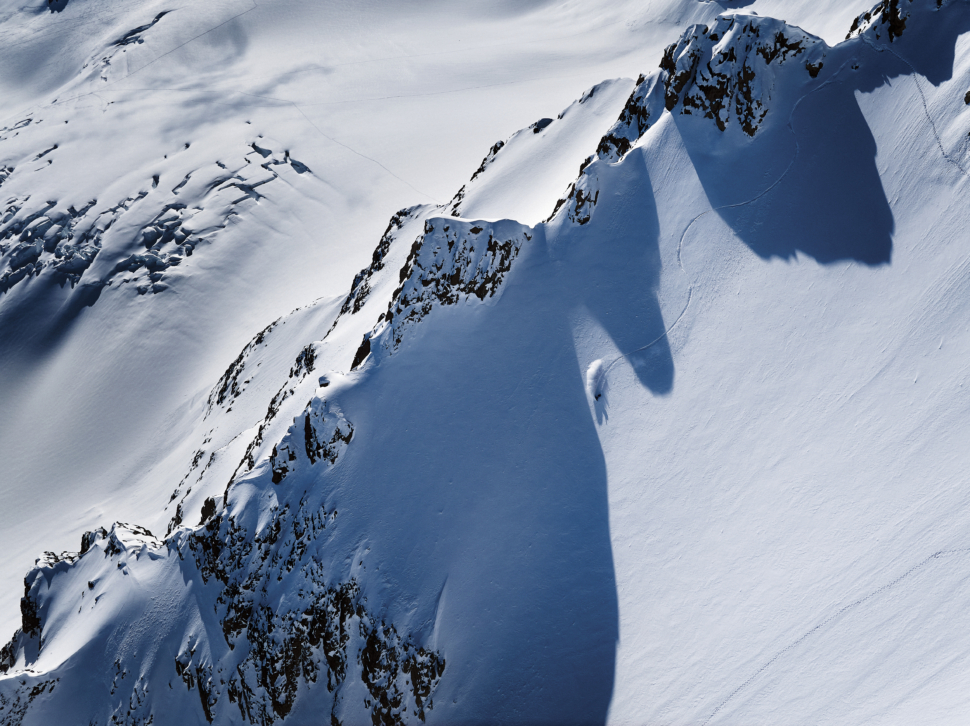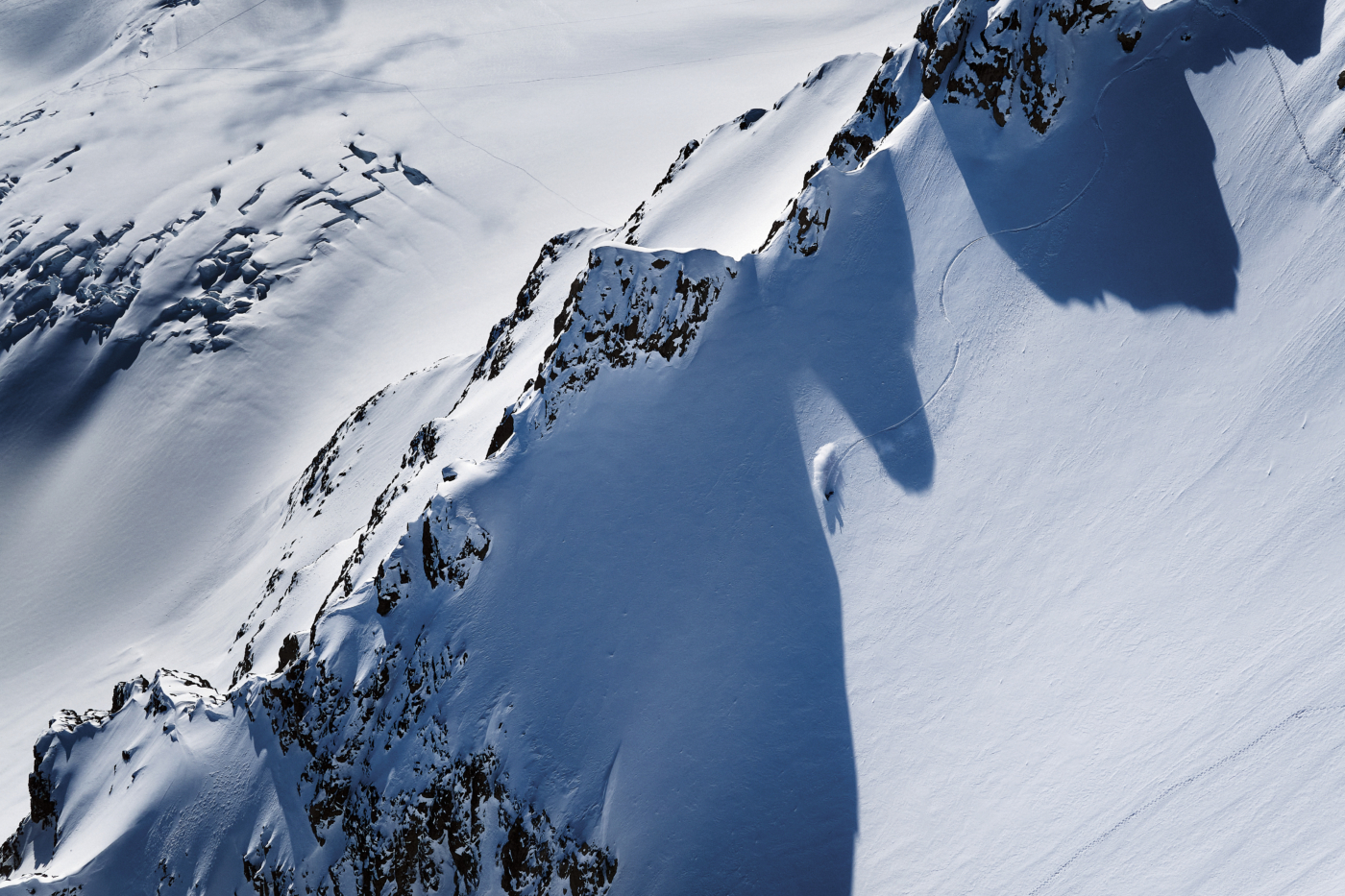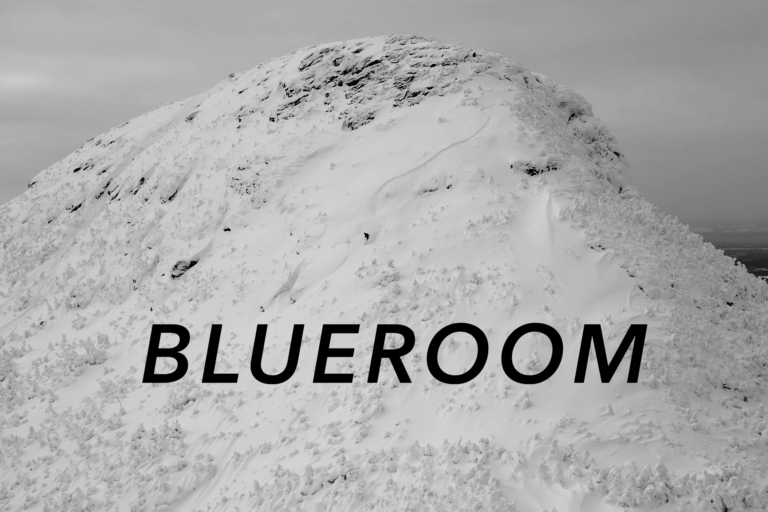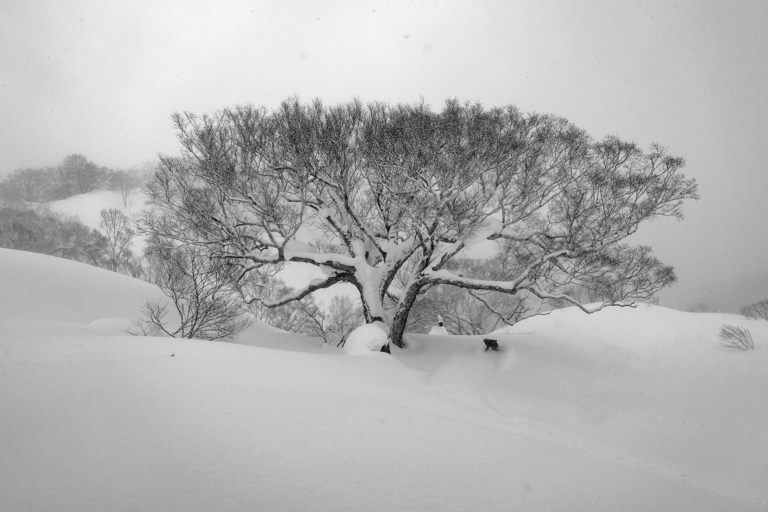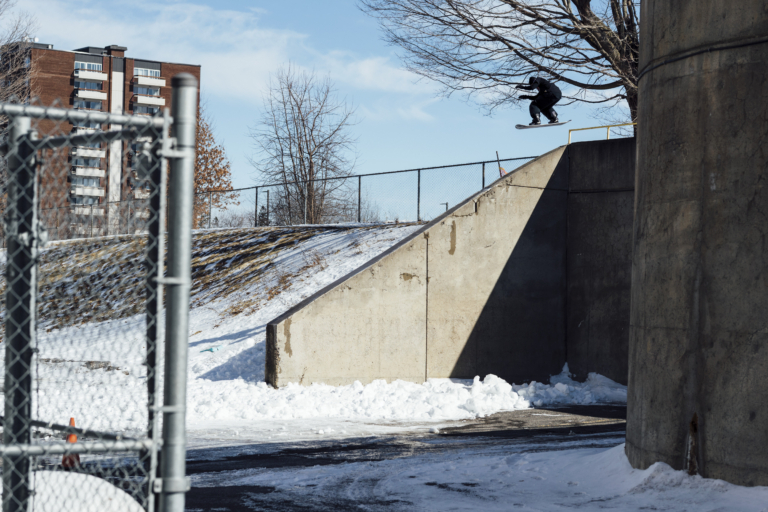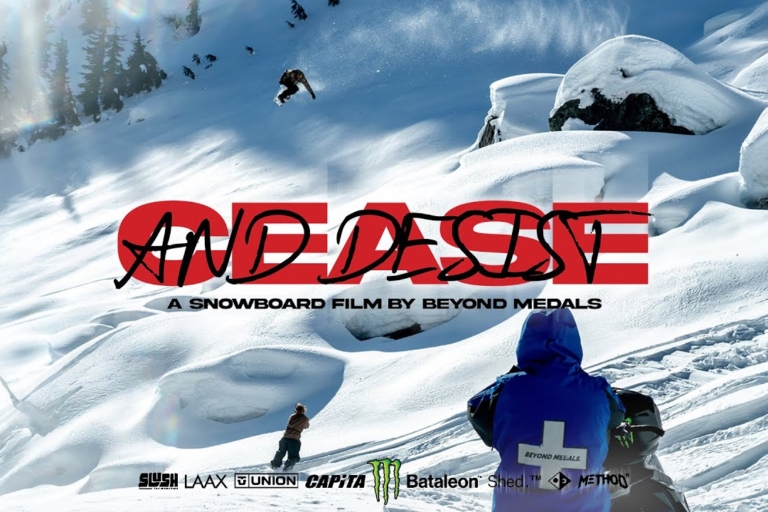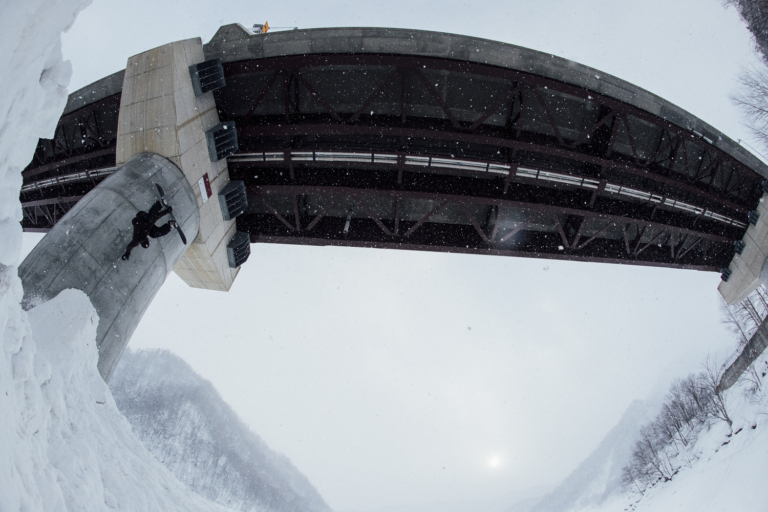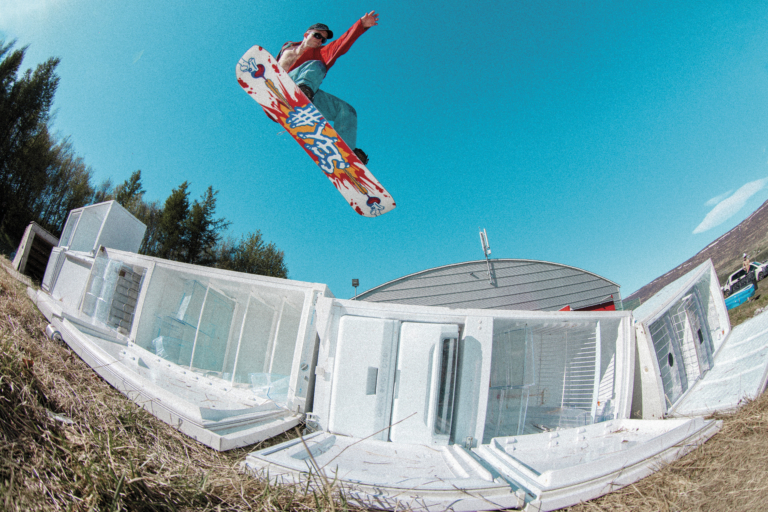Interview by Ally Watson
It wasn’t surprising when Elena Hight found herself on the Natural Selection podium only a few seasons into her transition from halfpipe riding. Her past competitive career stands out in her freeriding, as it does for many who’ve stepped into the backcountry after building the fundamentals on competition circuits. There’s a calm control to her riding; every turn seems full of purpose, and her landing gears are always on, as evidenced by her finals run in the 2025 Natural Selection contest. While Elena hasn’t completely left competition behind, she’s entered a new arena—but, coming up on eight years, it’s not so new anymore. With loss and grief impacting her deeply, she shares her perspective on risk tolerance, finding inspiration in tragedy and living the largest out of every moment she’s lucky enough to have.
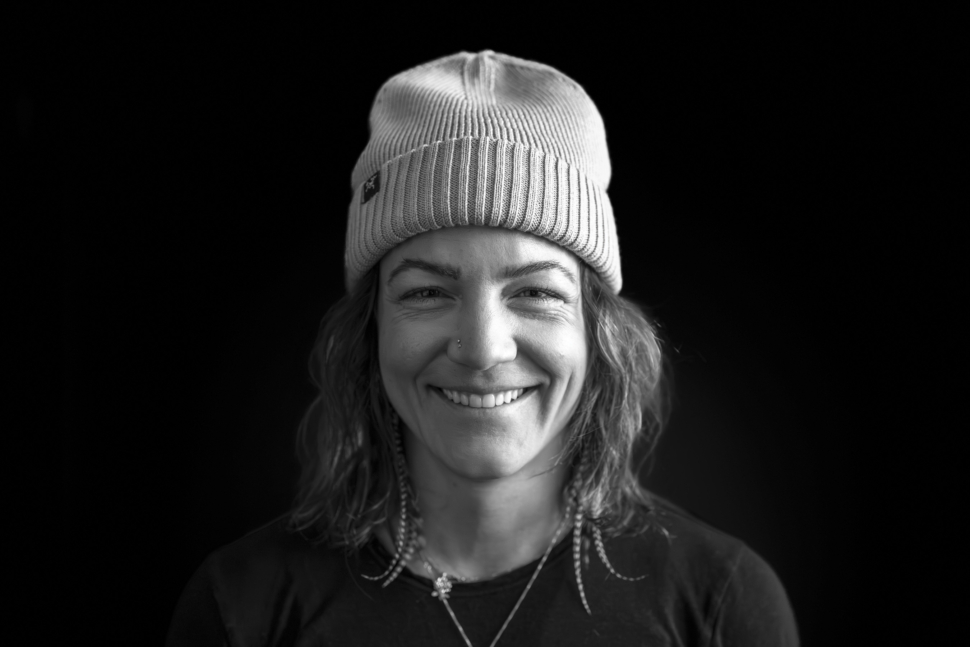
Ally Watson:
All right, so you’ve made a seamless transition from your competitive halfpipe career to where you’re at now with freeriding and backcountry expeditions. How does your competition background influence how you plan and execute your time in the backcountry versus contests like Natural Selection?
Elena Hight:
That’s a good question. I’m still trying to figure it out. [Laughs.]
Yeah, I think to the general public it might not seem very different, but they definitely are.
Well, I retired from competitive halfpipe snowboarding in 2018 and really jumped headfirst into the backcountry and freeriding, and [I] have always been really inspired by human-powered snowboarding. I kind of just threw myself into it all. I think the biggest difference is that competition armed me with really good skills for the backcountry, including mental skills, like being able to stay calm and make good decisions and that sort of thing. As far as snowboard skills, I had a lot to learn, and I still have a lot to learn. That’s been really exciting for me. I think after a 15-year career in competition, to be able to feel like I’m doing something new has been really invigorating.
This past year was my seventh year filming primarily in the backcountry and dedicating myself to all of those new skills. I have had the opportunity to compete with Natural Selection in the backcountry, which has been a really cool crossover tapping into my competitive spirit that I definitely still have. Doing that in a freeride arena that I really love offers so much creativity and inspiration for me. It’s been really awesome to have that as a platform and to challenge myself. Competition has been a double-edged sword that’s really easy to lose yourself in and put your whole worth and personal growth into. There’s a lot more in snowboarding [that] I care about.
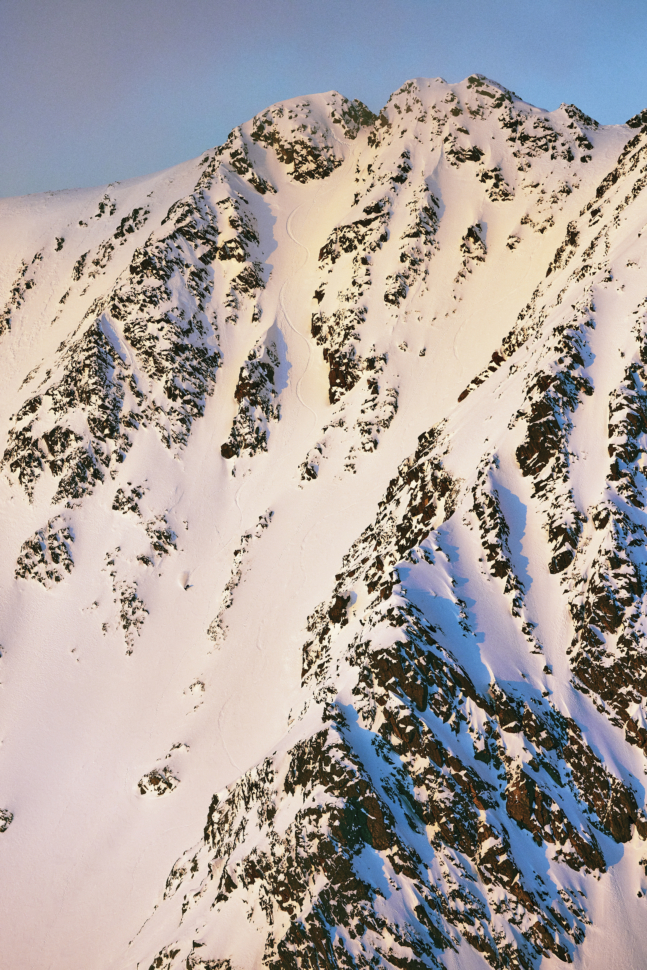
On the other side, there’s backcountry freeriding, which is more like day hits and a lot more freestyle elements and trying to find good snow and hit jumps and build things, and then there’s what Jeremy Jones has coined “shralpinism.” That uses more mountaineering skills to get into places that are a bit more techy, but also riding those places faster, with a more freeride style. I’m inspired by that, too. Having the time and energy and space to be able to do it all is the challenge.
I’m 21 years into this career, and having variety is what keeps me going.
So, with all the variety, what’s your mental process for more high-consequence terrain? What have you taken from your competition background to build mental resilience and, like you said, remain calm in planning your approach?
Competition really trains you to be able to perform under pressure. Those skills really do serve me in the backcountry. When I’m in a high-risk situation or get scared, whether it’s on top of a peak or mid-line, I have done a lot of work over my lifetime to be able to slow down my breathing, [home] in on the actual risks that are present—not just the boogeyman fears. It can be overwhelming, and I’m a student of the mountains, and sometimes I get scared, but I really find that when I can slow myself down enough to make that decision and come back to what I’m capable of, then I can approach it with confidence, and when approaching big lines, having confidence is the safest thing that you can do.
Yeah, 100%. On that note, how much time are you prioritizing to advance your risk-management skills and avalanche education? How do you fit that type of skill building into your season?
At the beginning of every season, I dedicate at least a chunk of time to that, whether it’s a class or a refresher and a skill builder. I have a terrible memory from hitting my head a lot, and we can never be too good at it. I’ve been lucky enough to have so many amazing mentors in the mountains, and I feel like I’m learning every day. I’m so lucky to be out with really seasoned professionals who have dedicated their lives to the mountains, and whether it’s a fellow rider or a guide that I’m out with, just paying attention and learning from them allows me to learn skills on an everyday basis.
Yeah, that’s awesome. And you moved to Jackson Hole, Wyoming, this past year after a lifetime in Tahoe.
Well, I was dating a climber, and he was based in Jackson. I had been spending the summer there last year and had planned to move in the fall. Unfortunately, he was in a climbing accident and passed away. I decided to continue on with the plan because it felt right, so I moved to Jackson, into his place, in Kelly, Wyoming, actually. It’s been all of what you can imagine, but there’s a lot of love there, and the mountains are amazing. It’s been a really good shift and a good place for me to be during a pretty hard time in my life.
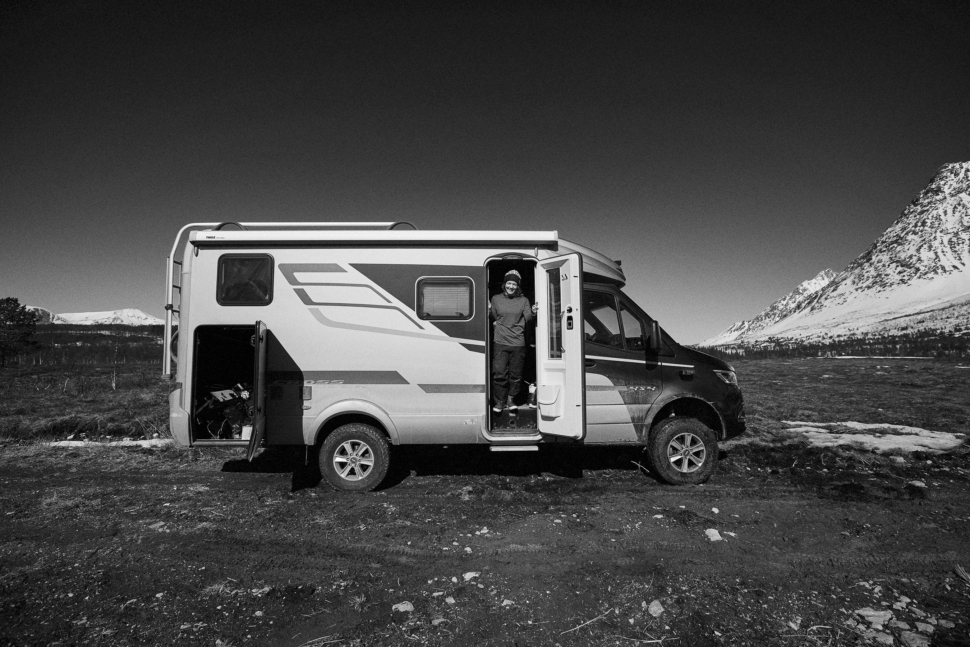
It seems like it was the right time for the move, despite the circumstances. With so much loss in the mountain community, and a particularly heavy year for yourself, would you say that you’ve experienced any kind of mental shift in your approach to risk management?
You know, I think these big life events, they make us question everything, and they make us question why we go into the mountains. Why do we enhance our risk? Obviously there’s a risk of dying—we’re all going to die someday—but why do we put it out there?
Yeah, 100%.
For me, I think my partner, Mikey Gardner, was one of the most alive people that I know. He had a lot of loss in his life and was able to alchemize that into a way of living that made him very present with the places and the people he was with yet very aware of the risks. But also very aware of how much life these risks give us.
I think for me, after experiencing so much loss with him and with Jeff Keenan and Alex Pashley, Jason Remple, and Dingo, it’s just been such a heavy year. I think what I continue to come back to is that we truly are the lucky ones that have this outlet that makes us feel really alive, that creates a community that is really supportive and connected. We can’t experience those super-high highs without having lows, and I think if loss has taught me anything, it’s to fully embrace when we have the highs and embrace the life out of the days we have. You know, I think it really hasn’t changed my risk tolerance; if anything, I think it’s made me want to live harder and live faster and experience more life while I’m here.
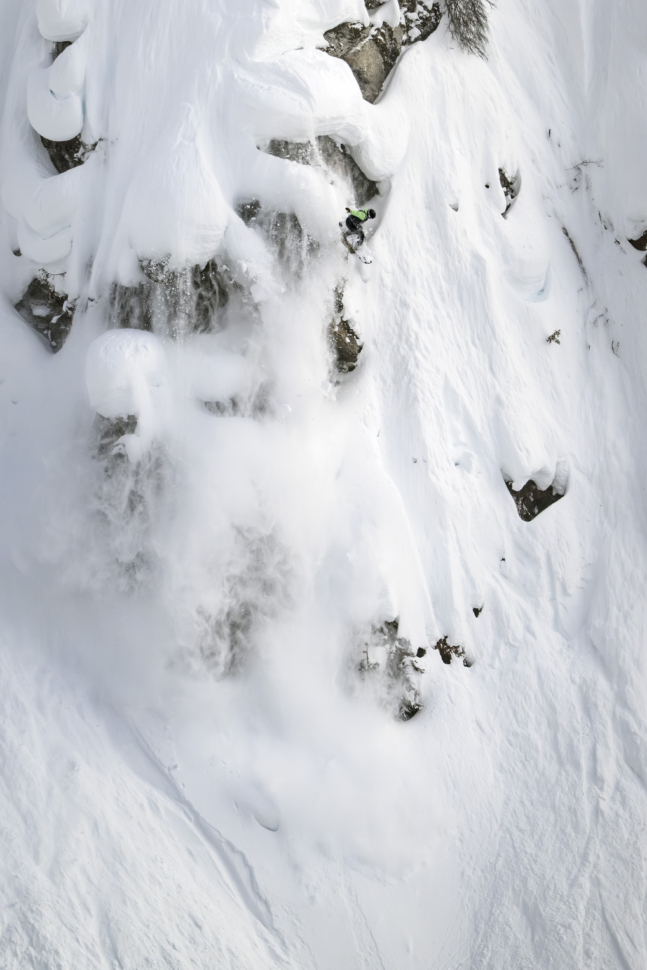
I think that’s a really important perspective because it’s something that feels truly unique to mountain communities, where people can be inspired by other people’s actions even if it’s alongside a tragedy or a loss.
Yeah, it’s been really beautiful to see everyone come together and also break open a bit. You know, I think that we experience these things, and we can either shut them out and continue on the way we were, or we can let them break us open. It allows us to experience life more, to connect with others more, and it allows us to just shine brighter. That’s what I’ve seen in our mountain community this year. You know, it’s a horrible circumstance, and I also think that the people we’ve lost would be proud of us, and we owe them that.
I can resonate with that and, in similar experiences, have been inspired by the lives that people have lived. What’s your mindfulness practice like, and how does it fuel the fast-paced side of you?
I’ve had a meditation practice on and off for a decade. It’s something that I’ve really leaned into, and definitely more in the last year. I think being able to fully tap into the present moment, no matter what’s happening, is something that’s extremely hard and, you know, I also think it’s one of the reasons why we’re all drawn to snowboarding…because it puts you in that present moment, but it’s so fleeting. We always leave wanting more, and so I think that meditation helps balance it out and hopefully extend those experiences to be a more lasting, everyday thing.
Definitely. So, a competition career can be very rigid in terms of training and progression, but what currently inspires you to set new goals and find new film projects? What’s lifting you up in snowboarding right now?
That’s a great question, oh gosh.
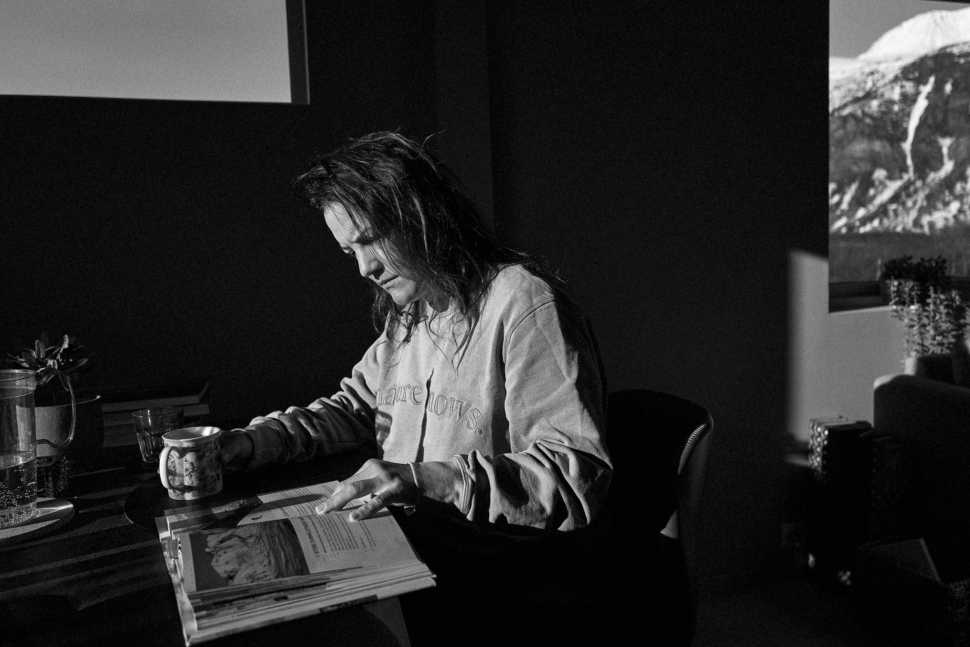
Yeah, I mean, what encouraged you to head out on your recent trip to the glacier?
Well, this glacier trip to Denali specifically was a personal trip with my friend Tailer Spinney, just the two of us, kind of a light and fast crew. My partner Mikey guided on Denali for 12 years. He really wanted to bring me up there, and it was one of his favorite places on earth. So, when he passed, I knew I was going to have to go, and I didn’t know if it would be this year, but it all lined up for me. It’s just to be close with him and experience one of his favorite places. Also to experience high altitude. It’s something I’m really intrigued by.
In my snowboarding, I have been asking myself a lot, like, “What makes you tick?” And that’s essentially what you’re asking. I’m broadly inspired by the people that I’m surrounded by. Being invited on people’s projects and objectives, I have learned so much about how they approach the mountains. Like last year, when I worked on Every Island Has a Name with Severin van der Meer, seeing his approach to the mountains and what inspired him got me excited to hit things I wouldn’t normally hit and approach the mountains in a way that is really unique. Looking at bigger mountain objectives and training for high-altitude peaks inspires me. Ultimately, it’s hard to say one thing, but I think I’m inspired by our snowboard community right now.
What is one thing you hope your career says to the next generation of snowboarders, and what are you taking with you into this next season?
Oh gosh, I hope to progress women’s snowboarding and big-mountain riding.
I think you have already done that…
Thank you. And, you know, my biggest influence and inspiration when I stepped into this was always Victoria Jealouse and her approach, so I hope to help elevate what she began, and the other girls who have come up before me, and continue to push the progression and the access and the ability to get into this space. There’s much to be done, and it’s just not the easiest space to get into, and I hope my career can inspire more women to get into it and move it forward.
And what am I working on? I have to be totally honest, my brain has been so make-it-to-tomorrow that I have zero plans for next year, and I am in full flow of trying to just stay as present as I can and make it through every day. And hopefully next season unfolds in a way that I can do something new.
That sounds like a great place to be in, and probably pretty rare for someone like you to not have a bunch of things lined up, but I’m sure there will be plenty of opportunities.
Thanks. Yeah, we’ll see. It’s new for me, and I’m a bit of a planner, so it’s a good life practice.
